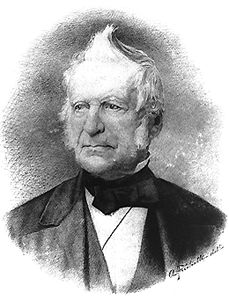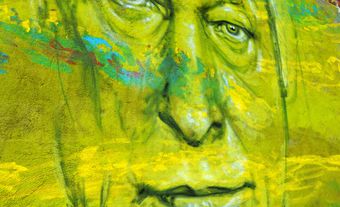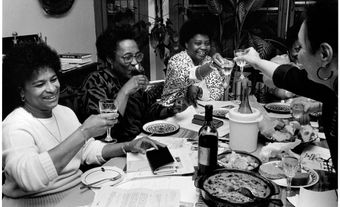
The concepts of “nation” and “nationalism” have long attracted the interest of intellectuals and shaped the development of political thought in Québec. The definition of “nation” and the political context that frames it have taken different forms since the British conquest of 1760. At first, the concept was associated with the survival of French Canadians in Canada — a view that prevailed until the Quiet Revolution in the 1960s. By then, intellectuals had begun to develop a truly Québécois nationalism, one related to Québec’s political emancipation. More recently, authors have resisted ethnocentric interpretations of nationalism in Québec by presenting a civic-based model that is inclusive, intercultural and focused on territory. This view is opposed by one that centres on historical, heritage-based nationalism on which the option of a republican political regime for Québec is built.
Survival
Safeguarding collective French identity dominated political thought and influenced successive political arrangements in New France, which became a British colony in 1763 (see Treaty of Paris). Resistance to British rule culminated in the Patriotes’ 1837 rebellion. Drawing inspiration from the American example, as well as from French republicanism, the Patriotes‘ struggle concerned only Lower Canada, involved severing ties with Britain, and the establishment of an autonomous state. From that point on, the Patriotes conceived a nation in terms of a political identity uniting all the inhabitants of the same country, Lower Canada, governed according to the principle of democratic freedoms.
The rebellion failed, and the 1840 Act of Union, under which Upper Canada and Lower Canada became a single political entity, marked not only a decisive political turning point in terms of the dominant power but also, and above all, an ideological turning point that would have long-lasting consequences. By openly proclaiming its objective of assimilating the French, the new political regime ensured that nationalist sentiment would be wedded to the imperative of French survival on North American soil for more than a century. From then on, French Canada would identify itself by its cultural characteristics. The “nation” was no longer an inhabited territory to be ruled by French Canadians themselves, as proposed by the 1837 Patriotes, but rather a community of language, religion, laws, customs and traditions that was threatened and had to be defended. Thus has formed the concept of the nation as a sociocultural community requiring protection within Canada.
Triumph of the Clergy
Even though the political ideals of nation and liberty formulated by the Patriotes continued to find expression in the activities and publications of the Institut canadien (1844‒1869), their liberal, democratic and secular ideas could not survive the doctrinal clash that pitted them against the Catholic clergy. Through its ultramontane preaching (see Ultramontanism) and condemnation of liberalism, the clergy succeeded in imposing its view of the overriding importance of the Catholic faith and the requirement to submit to the legitimate English authority; it even made the Catholic religion the first criterion of French Canadian nationality. Religion was the best way to ensure that French Canadians in Canada remained a cohesive community. The link that the clergy established between the Catholic religion and the survival of the French in Canada enabled it to develop an ultramontane and conservative nationalism of which Jules-Paul Tardivel was the most famous representative at the end of the 19th century. This Catholic militant was the first person to propose the idea of a separate French state following the establishment of the political regime that united the British colonies in North America (see British North America Act) in 1867.

The Nationalist League
With the aim of opposing Canada’s participation in the British Empire’s wars at the beginning of the 20th century and running counter to Tardivel’s ideas, French-Canadian intellectuals were the first to come to the defence of Canada as a sovereign nation. In 1903, they founded the Nationalist League (Olivar Asselin, Omer Héroux, Armand Lavergne, and Jules Fournier) and spread the ideas of their mentor, Henri Bourassa.
For Bourassa, the concepts of “nation” and “nationalism” had a political meaning. They overarched the two main sociocultural and linguistic communities in the country: the nation contained the communities and nationalism harmonized their relationship of coexistence within the same state. From this point of view, Canada was the result of the harmonious meeting of “two peoples”, two languages and two religions. Henri Bourassa’s and his followers’ vision of what the “English-French” Canadian nation should be was based on history and, in particular, on their interpretation of the vision developed by the Fathers of Confederation. According to them, the British North America Act (1867) was an agreement between the two founding peoples of Canada, a “free and voluntary association of two peoples, enjoying equal rights in all matters”.

This federalist vision of Canada, formulated to counter both British imperialism and the separatism espousedby Tardivel, dissociated the sociocultural community of affiliation from national identity as a political obligation. But it was a different story altogether for Bourassa’s successors who, on the pretext of traditionalism, used the term “nation” to refer only to French Canadians.
The Community of Blood Relationship
Not only conscription but also the failure to win the right to establish French-language schools outside Québec by the issue of Ontario’s Regulation 17 (see Ontario Schools Question) confirmed for the followers of Lionel Groulx, working under the banner of a Montréal magazine called L’Action française (1917–1928), that only French Canadians formed a nation. In their view, French Canadians in North America formed the most strongly constituted nation, one that enjoyed the highest degree of cohesion and solidarity resulting from their blood relationship and their shared language, history, religion and mores; furthermore, it was community driven by a strong desire to live together.
L’Action française brought to French-Canadian nationalism the argument of history, in particular that of the birth of a new nation on North American soil and its heroic resistance to Anglo-Saxon assimilation. The way paved by their ancestors after the Conquest drove French Canadians toward national “emancipation”. Such was the meaning of the great dates in history of which Lionel Groulx’s work was the prototype. L’Action française proposed to the French Canadian nation the ideal of a sovereign French state, “la Laurentie” (Laurentia), in which national identity and political citizenship would coincide. All economic, social, cultural and political ideas converged toward this essential affirmation of national existence, called “integral nationalism”. This concept prevailed until the end of the 1950s, with the publication of L’Action nationale (established in 1933 by Esdras Minville) which, in the context of the economic crisis of the 1930s, proposed a more moderate political position of autonomous nationalism and proclaimed the province of Québec to be the “national state” of French Canadians in Canada.
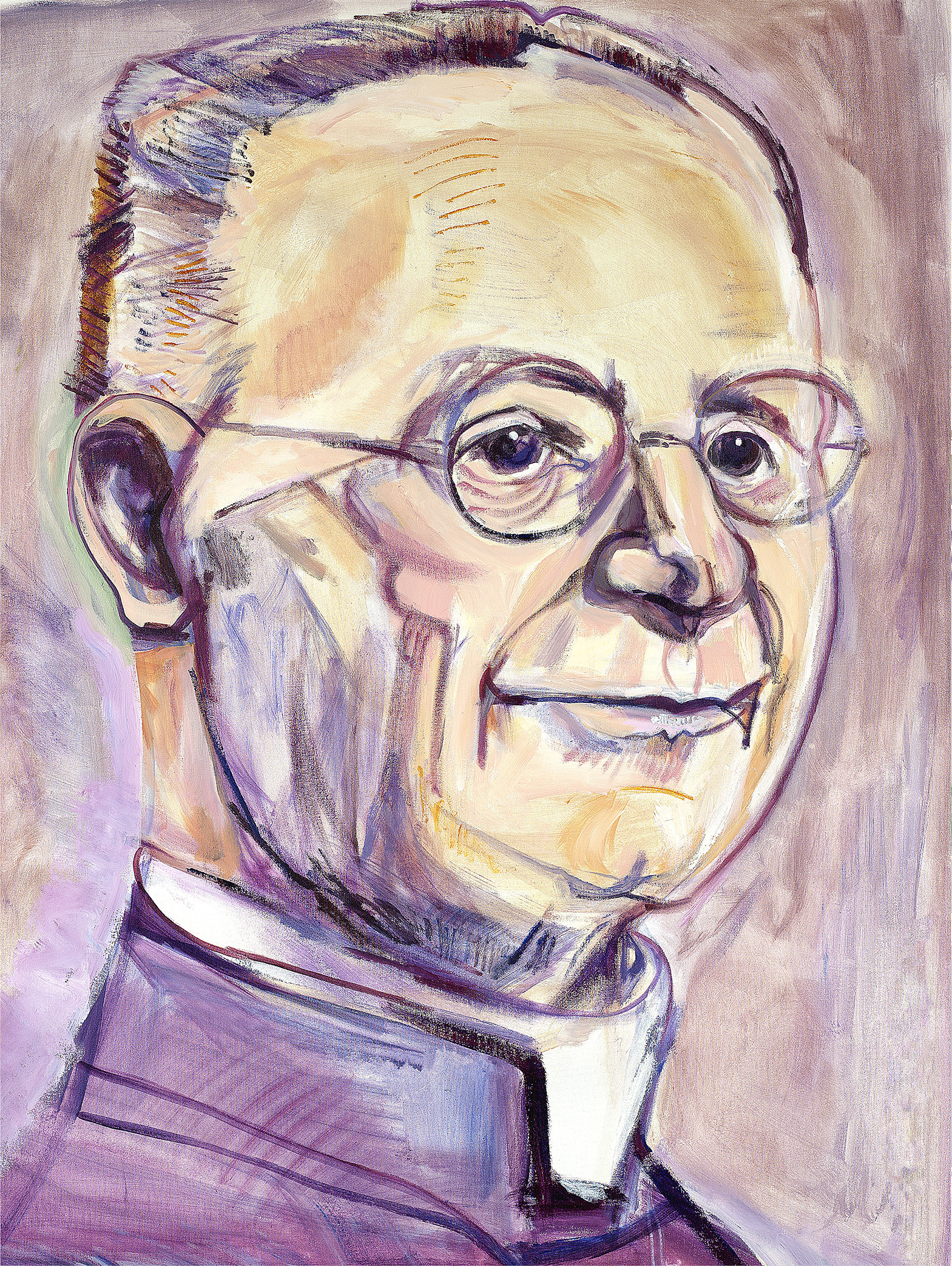
Political Emancipation
The traditionalist nationalism identified with the views of Lionel Groulx and associated with the political regime of Maurice Duplessis was the target of the founders (including Pierre Elliott Trudeau and Gérard Pelletier) of the magazine Cité libre (1950‒1966). They argued in favour of democratizing political institutions and modernizing the state. Yet it was in the process of modernizing the Québec state, which began in 1960 with the Quiet Revolution, that separatist political organizations emerged (such as the Parti Québécois in 1968) and intellectuals conceived of a new nationalism dissociated from traditionalism. Proclaiming national liberation as their objective, several writers advocated the development of the Québécois identity in terms of a reclaimed ethnicity that would underpin the new proposal for a country of Québec.
In particular, an assessment of the experience of “colonialism” in Québec gave support to intellectuals’ pleas for independence and socialism. Proponents argued that the Québécois identity could be regained only through decolonization. In their view, the Québécois people were colonized, culturally alienated and depersonalized. National independence was seen as the solution for liberating the people from colonial and capitalist domination by English Canada. These anti-colonialist ideas were expounded in several publications (as Nègres blancs d’Amérique by Pierre Vallières) and periodicals, including the magazine Parti pris (1963‒1968), which served as a reference point. Despite the theory of class struggle and the call for a socialist revolution, it was the issue of national oppression that dominated intellectual thought.
The Separatist Vision
From the events of October 1970 (see October Crisis) through the election of the Parti Québécois in 1976 to the Québec Referendum (1980), intellectuals chose many different ways to claim that they believed in both marxism and separatist nationalism. The Québec question was set in a context of class struggles and alliances and was understood as a phenomenon contributing to the disruption of the Canadian state. The post-referendum years were marked by criticism of totalitarianism and the end of the ideological supremacy of marxism,and intellectuals devoted all their energy to developing new democratic ideas with which to reframe the Québec question. This time, the Québécois nation would be defined as a political entity that could unite a broad range of sociocultural communities, and the challenge of pluralism in Québécois society could be met only through the sovereignty of that entity.

Although it is common wisdom that the result of the referendum of May 20, 1980, was to blame for the decline in separatist nationalism, the post-referendum period also coincided with the budgetary crisis and an avowed political commitment to reduce state intervention, long considered one of the core principles of the Québécois nationalist movement.
The ever-greater support given to a market-based society instead of the socialist policiesthat spawned the Welfare State,along with the idea a society open to the Free Trade agreements with the United States, reframed the political debate and the basis of intellectual engagement.
Failure of Federalist Reforms
The repeated failure of efforts to reform Canadian federalism, the purpose of which was to bring about Quebec’s formal acceptance of the 1982 Constitution (see Patriation of the Constitution;Meech Lake Accord; Charlottetown Accord), revived the sovereignty movement. This was evidenced by the election of separatists from the Bloc Québécois(BQ) as members of the House of Commons in 1993, the election of a provincial gov ernment led by the Parti Québécois in 1994, and the holding of a referendum on sovereignty in October 1995 (see Québec Referendum of 1995). This meant that, at the very time Québec was preparing to operate as a nation state, political thought was dissociating the concept of “nation” from identity and ethnicity.
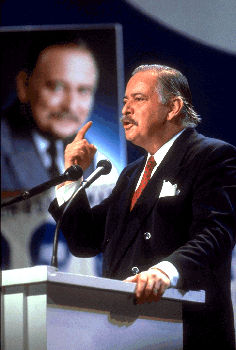
Interculturalism
Proponents of a sovereign Québec call for a modern, secular, pluralist society open to the world — what some would call a “civic” or “territorial” nationalism offered to all citizens whatever their ethnic background. The new nationalism would no longer be based on identity or common ancestry associated with real or perceived xenophobic tendencies. Instead, it would be based on the citizenship of a people who shared the same history and the same institutions and who felt a connection to a common territory. Such a nationalist sentiment is also said to be “social” because it promotes inclusion, a culture of convergence of ideas, and respect for democratic values. This type of nationalism entails the affirmation of a society open to the world and sees the sovereign state of Québec as a player in the system of worldwide trade and the growing interdependence of states. This theory is presented in detail in the work on interculturalism published by historian and sociologist Gérard Bouchard, among others.
Yet globalization of trade and the growth of migration in the early 21st century have revived the question of French identity in Québec. A number of works, including those of Jacques Beauchemin, Éric Bédard and Mathieu Bock-Côté, are outright pleas for a historical nationalism. They call on the Québécois to return to their roots and rehabilitate the past, history, heritage and culture in order to escape the prevailing dogma of multiculturalism and thereby ensure that the historical French-language majority in Québec does not become just one cultural group among many. While espousing the same thesis of heritage-based nationalism, writers such as Marc Chevrier and Stéphane Kelly focus more on the political institutions needed to maintain the French Canadian identity, and they propose the establishment of a republican political regime for Québec. These are the arguments that are driving current reflection and discussion on nation and identity in Québec.
See also Francophone-Anglophone Relations; English-Speaking Quebecers

 Share on Facebook
Share on Facebook Share on X
Share on X Share by Email
Share by Email Share on Google Classroom
Share on Google Classroom

